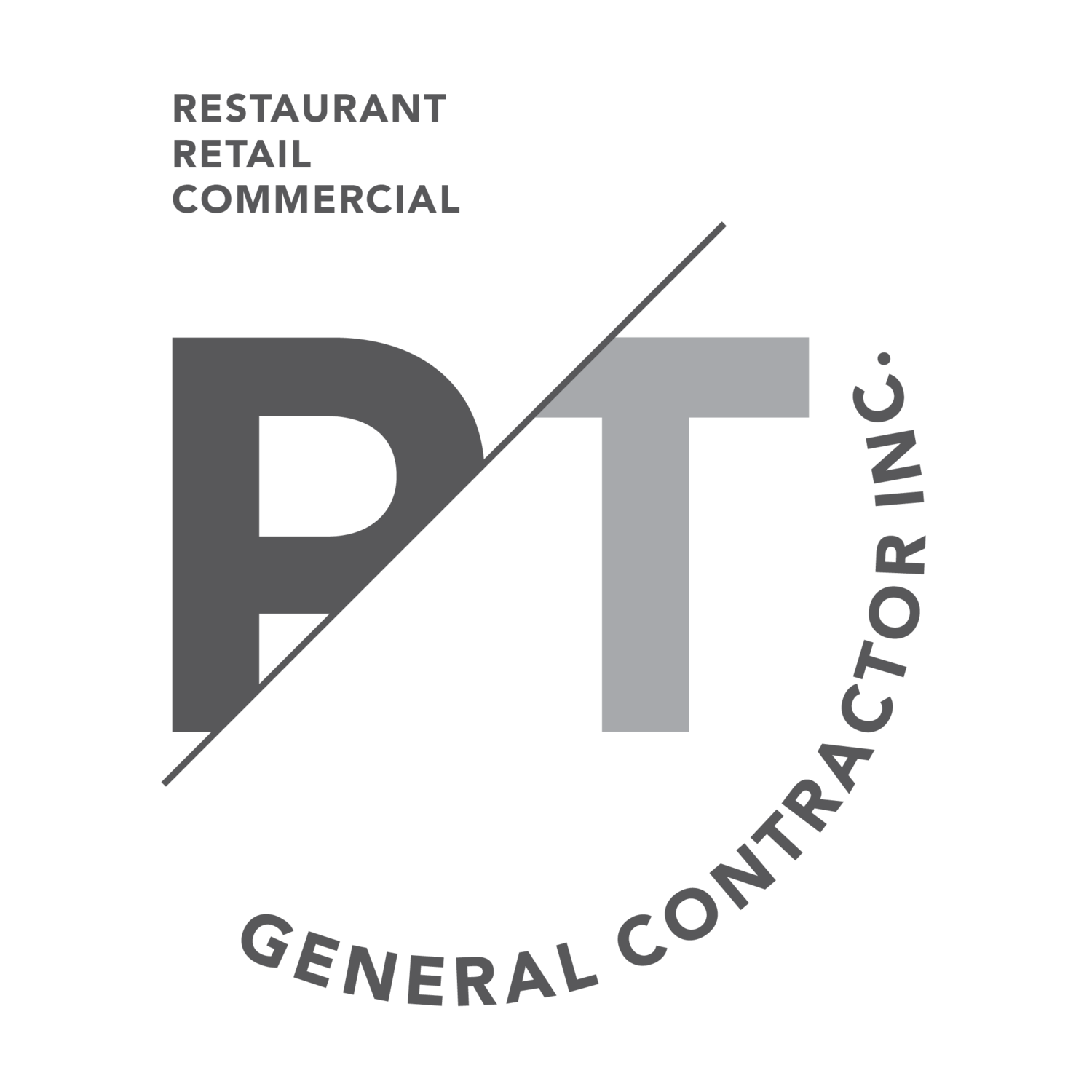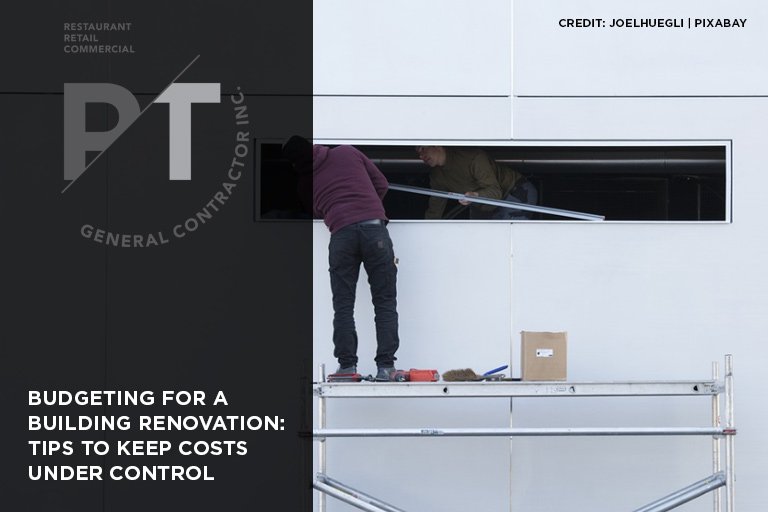Budgeting for a Building Renovation: Tips to Keep Costs Under Control
Renovating a building can be an exciting yet challenging endeavour. Whether you're modernizing an old structure or making functional upgrades, a well-planned budget is essential to keep your project on track.
Without careful financial planning, it's easy to fall into common traps – overspending, delays, or even halting the renovation altogether. Let’s navigate the complexities of budgeting for a building renovation, ensuring that you can achieve your vision without breaking the bank.
Assess the Scope of Your Renovation
Before diving into any renovation, it’s crucial to assess the full scope of your project. This step will serve as the foundation for your budget and help you avoid costly surprises down the road.
Define Your Renovation Goals
Are you looking to enhance the building’s aesthetics, improve energy efficiency, or increase usable space? Defining these goals will help you allocate your budget effectively and focus on what truly matters.
Prioritize Essential Renovations
Once your goals are clear, prioritize the renovations that are most essential. Structural repairs, safety upgrades, and necessary code compliance should top your list. After these critical areas are addressed, you can then consider more aesthetic or optional upgrades, like new finishes or luxury fixtures.
Prevent Scope Creep
It’s easy to get carried away with additional ideas once the renovation is underway. To keep costs under control, set clear boundaries on what’s included in the project. Make sure to stick to your original plan unless absolutely necessary.
Changes during the renovation can quickly inflate costs, so keep a close eye on any new ideas that may arise and evaluate their impact on your budget before proceeding.
Research and Estimate Costs
Once you’ve defined the scope of your renovation, it’s time to dig into the numbers. Accurately estimating costs is crucial to creating a realistic budget and avoiding financial strain as your project progresses.
Collect Multiple Quotes
Carefully compare quotes from multiple contractors
Start by gathering quotes from several contractors. This will give you a clearer picture of the going rates for the work you need done and help you identify the best deal. Be sure to compare not only the prices but also the quality of materials and services each contractor offers.
Investigate Material Costs
The cost of materials can vary widely based on quality, availability, and economic factors. A report highlighted how economic conditions, such as labour costs and material availability, can significantly influence renovation budgets.
For instance, in markets like Australia, rising costs due to supply chain disruptions are becoming a major concern for future projects. Keeping an eye on these trends can help you anticipate potential price increases and adjust your budget accordingly.
Anticipate Hidden Expenses
Renovations often come with unexpected costs, such as permits, inspections, and repairs that weren’t initially planned for. To avoid budget overruns, make sure to factor in these hidden expenses from the start. Allocating a portion of your budget to cover these surprises can save you from financial stress down the line.
Build a Contingency Fund
Even with the most meticulous planning, renovation projects often encounter unexpected challenges that can lead to additional costs. This is where a contingency fund becomes an essential part of your budget strategy.
Prepare for the Unexpected
No matter how well you plan, surprises are inevitable in any renovation project. Hidden issues, such as structural problems, outdated wiring, or water damage, can surface once the work begins. Having a contingency fund allows you to address these issues without derailing your entire budget.
Allocate a Safety Net
A good rule of thumb is to set aside at least 10-20% of your total renovation budget as a contingency fund. This cushion ensures that you have the financial flexibility to handle any unforeseen expenses that arise. For example, if your renovation budget is $100,000, consider allocating $10,000 to $20,000 specifically for unexpected costs.
Plan for Potential Delays
Time is money in the world of renovations, and delays can quickly increase costs. Whether it’s due to weather, supply chain disruptions, or contractor scheduling conflicts, delays are common. A contingency fund can help cover the additional expenses that may result from these setbacks, such as extended rental costs or higher labour fees.
Finance Your Renovation Wisely
Financing your renovation is a critical step that requires careful consideration. The right financing option can make your project more manageable, while the wrong one could strain your finances long after the renovation is complete.
Explore Different Financing Options
There are several ways to finance a building renovation, each with its own advantages and drawbacks. Personal savings, home equity loans, lines of credit, and renovation-specific loans are some of the most common options.
Take the time to explore these possibilities, considering factors like interest rates, repayment terms, and your overall financial situation.
Select the Best Financing Method for Your Needs
Your choice of financing should align with your renovation goals and financial circumstances. For instance, if you have substantial equity in your property, a home equity loan might offer favourable terms.
On the other hand, if you’re planning a smaller project, using your savings or a personal loan could be more straightforward. Be sure to weigh the long-term impact of your choice, including how it fits into your overall financial plan.
Calculate the Impact on Your Budget
Before finalizing your financing, it’s important to understand how it will affect your renovation budget. Consider the cost of interest, loan fees, and any potential changes in your monthly expenses.
Make sure your budget accounts for these additional costs to avoid surprises down the road. It’s also wise to plan for how you’ll manage loan repayments or any other financial commitments that result from your chosen financing method.
Hire the Right Professionals
Choosing the right professionals is one of the most crucial decisions you'll make during your renovation. The quality of their work can significantly impact both your project's success and your budget.
Choose Experienced Contractors
Think twice with unknown or new contractors
Experience matters when it comes to building renovations. Whether you’re working on a commercial property or a residential building, hiring contractors who have a proven track record is essential.
For instance, when seeking commercial contractors in Toronto, look for those with extensive experience in similar projects. Experienced contractors are more likely to deliver high-quality results while staying on budget and schedule.
Vet Professionals Thoroughly
Before hiring, take the time to vet your contractors. Request references from past clients and review their previous work to assess the quality and reliability.
Don’t hesitate to ask detailed questions about how they manage budgets, handle unexpected challenges, and communicate with clients. A contractor’s approach to these aspects can provide insight into how well they’ll manage your project.
Monitor Budget Adherence
Once your contractor is on board, it’s vital to keep a close eye on how the budget is being managed. Regular check-ins and clear communication will help ensure that your project stays within its financial boundaries.
Ask your contractor to provide regular updates on expenses and progress. If any issues arise that might affect the budget, you’ll want to know as soon as possible so you can make informed decisions.
Keep Your Renovation on Track
Sticking to a well-planned budget is crucial to a successful renovation. With careful planning, smart choices, and the right professionals by your side, you can transform your space without financial stress. If you're planning building renovations in Toronto, reach out to PT General Contractor at (416) 451-6173. Let us help you bring your vision to life while keeping costs under control.



